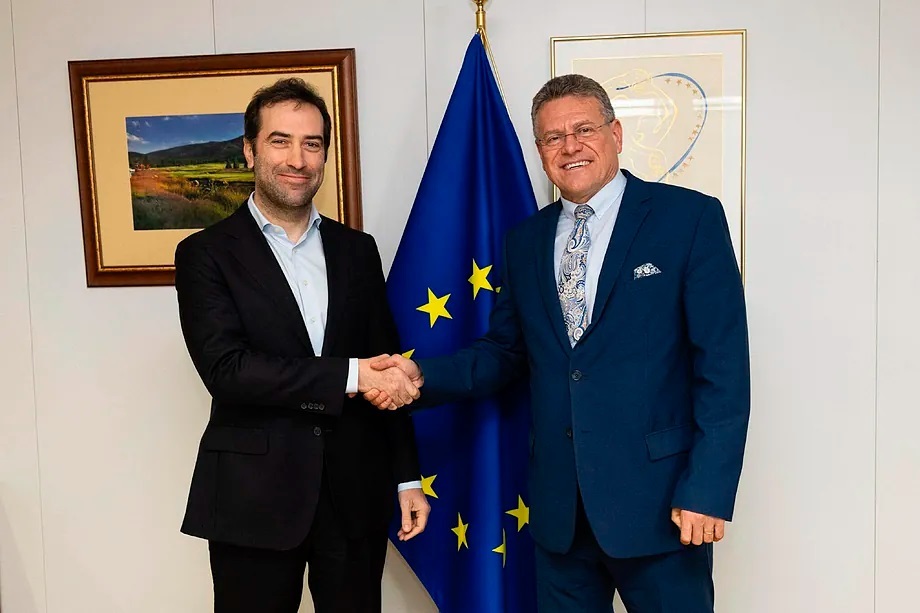"Calm" and "caution" are probably the most repeated words in the European Union when asked about Brussels' response to the trade challenge posed by U.S. President Donald Trump. Also "firmness" and "intelligence," of course, as that will be the EU's tariff responses. But first, it is necessary to know for sure what the specific measures are, something that is unknown with just a few hours left until the "day of liberation," as the magnate has called April 2.
On that day, the 25% tariffs on vehicles not manufactured in the U.S. will come into effect, as well as reciprocal tariffs, which is how the U.S. has named the tariffs it will apply to countries that have VAT even though this tax is not a trade barrier. For Trump, it is, or so he claims, and in Brussels, they do not rule out additional measures being announced from the American country on that same day. Or in the days immediately following.
"Everything can change from one day to the next, we must be cautious and calibrate the response well," sources from the Commission state regarding what lies ahead in the coming hours. "We are at the beginning of this negotiation process that will likely take many months, hence the message of calm when interpreting the announcements that will come out this week. The European Commission has the necessary tools to start steering these negotiations and defending its industries and companies," Economy Minister Carlos Cuerpo emphasized yesterday from the EU capital after meeting with Trade Commissioner Maros Sefcovic.
The message is very clear. In public and in more informal conversations. Wait, have the complete picture of Trump's measures, and respond forcefully. Inflicting as much damage as possible on the United States, especially on products representative of the most Republican states, and with the least possible consequences for Europe.
The response will come in mid-April, and initially, it was estimated to have an impact of 26 billion euros. But Trump's volatility has made that figure fall short, and the Commission is already working on expanding the tariff measures. In Brussels, they have also identified what they already call the Big Five, the five major sectors where the fight will be particularly challenging and where Trump is especially interested in boosting the U.S. industry: the pharma sector, semiconductors, metals like aluminum and steel, wood, and the aforementioned automobiles.
Therefore, tariffs will be one of the main issues shaping the European week. But not the only one, as the NATO headquarters will host on the 3rd and 4th a new meeting of Defense Ministers. Here, undoubtedly, the question of military spending will arise again, something that the Prime Minister, Pedro Sánchez, committed to increasing more strongly last week in Congress.
When asked about it, Cuerpo emphasized yesterday that "Defense spending will not compete with social spending, and this is a message that also needs to be clear to the public." "How will we achieve it? Well, as we have been doing in recent years, with a fundamental element for us, which is economic growth. Our economic growth allows us to expand the revenue pie and therefore be able to reach more places, more expenses, more investments, and precisely promote that we can meet all our commitments, including reaching the 2% of GDP spending on Defense," he stated when asked about this point.
